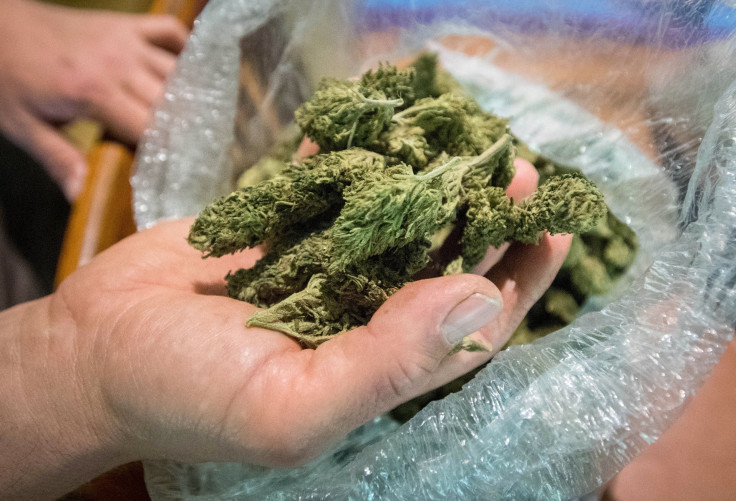Marijuana News: The SAFE Banking Act's Big Day Is Approaching

The marijuana industry made history more than a dozen times in 2018. We witnessed Canada become the first industrialized country in the world to legalize recreational cannabis, and observed the U.S. Food and Drug Administration (FDA) approve its very first cannabis-derived drug. We even saw support for marijuana legalization soar to an all-time high.
However, one thing we haven't seen is clear and definitive progress made on the marijuana front at the federal level in the United States.
The U.S. marijuana industry is fighting an uphill battle
Currently, cannabis is classified as a Schedule I substance by the Controlled Substances Act. Put simply, this means it's entirely illegal, prone to abuse, and despite having a cannabidiol-based drug legalized by the FDA, doesn't have any recognized medical benefits. Put in another context, marijuana is classified on par with heroin and LSD, while cocaine is actually slightly less restrictive than cannabis as a Schedule II substance.
Even though the federal government has taken a hands-off approach to regulating the pot industry, which has allowed 33 states to pass some form of medical pot legalization since 1996, the mere fact that Congress has been unwavering on its scheduling of cannabis creates a lot of problems for the industry.
For example, profitable marijuana businesses in the U.S. are subjected to U.S. tax code 280E, which was implemented back in the early 1980s as a response to drug smugglers trying to write off their illicit business expenses. This tax code disallows virtually any normal business deduction, save for cost of goods sold. This results in profitable weed companies paying an effective tax rate of 70% or higher.
Perhaps an even bigger problem for the U.S. marijuana industry is that few avenues exist for cannabis businesses to gain access to basic banking services. We're talking about no access to loans, credit lines, or even a simple checking account, which forces the industry into a situation where it's forced to work only with cash. Financial institutions are forced to ignore the cannabis industry because they fear potential federal repercussions if they do offer financial services.
However, a growing number of lawmakers believe they have a solution for this latter problem.
The SAFE Banking Act is up for a vote in the House later this month
The Secure and Fair Enforcement (SAFE) Banking Act, which easily passed the House Financial Services Committee this past March, continues to gain steam on Capitol Hill.
The SAFE Banking Act would effectively protect financial institutions in states that have chosen to legalize marijuana to some extent from federal intervention. This would allow banks and credit unions to offer loans, credit lines, and checking accounts to cannabis businesses without the fear of financial or criminal penalties being levied against them by the U.S. Justice Department. According to a survey from national pollster Gallup in October, 66% of Americans favor the legalization of marijuana, which indirectly implies support for the ability of cannabis companies to gain access to basic banking services.
After clearing the House Financial Services Committee, the next step for the SAFE Banking Act is an official vote in the Democrat-led House later this month. The 435-member chamber only requires a majority (218 votes) for passage, and the SAFE Banking Act had 206 cosponsors as of this past week. This includes 180 Democrats, who have traditionally had a more favorable view of marijuana, as well as 26 House Republicans. You'll note that this means the SAFE Banking Act is actually a bipartisan bill.
There's a very good chance that the SAFE Banking Act will make history and pass via House vote.
Now, the Senate is a different story...
The U.S. Senate: Where cannabis legislation goes to die
On one hand, the Republican-led Senate does have some early stage strong support for financial banking reform when it comes to cannabis. Forbes contributor Tom Angell notes that the Senate's version of the SAFE Banking Act picked up its 33rd cosponsor earlier this week. That's a third of the chamber in favor of marijuana finance reform, and it includes five Republicans.
But 33 cosponsors does not equate to passage. With Republicans holding a thin lead in the upper house, garnering enough votes for passage could prove difficult.
Then again, gaining Senate cosponsors may be low on the totem pole in terms of concerns. A bigger problem is Senate Majority Leader Mitch McConnell. McConnell has made it plainly known that, in spite of favoring hemp reform, he has no favorability whatsoever toward legalizing marijuana. McConnell has done everything in his power to keep bills from reaching the Senate floor for a vote, and that may very well be the fate that the SAFE Banking Act encounters, assuming it passes in the House.
If there is one sliver of hope, it's that McConnell may break his traditional hardline stance on cannabis in order to put the GOP in better light heading into the 2020 elections. With a number of GOP Senate seats up for reelection, passing a bipartisan cannabis banking reform bill might aid his party's chances of retaining their thin majority in the Senate.
Clearly, the SAFE Banking Act still has a long way to go before it could find its way to President Trump's desk. For now, cannabis enthusiasts, business operators, and investors should approach these baby steps forward with guarded optimism.
This article originally appeared in the Motley Fool. The Motley Fool has a disclosure policy.




















